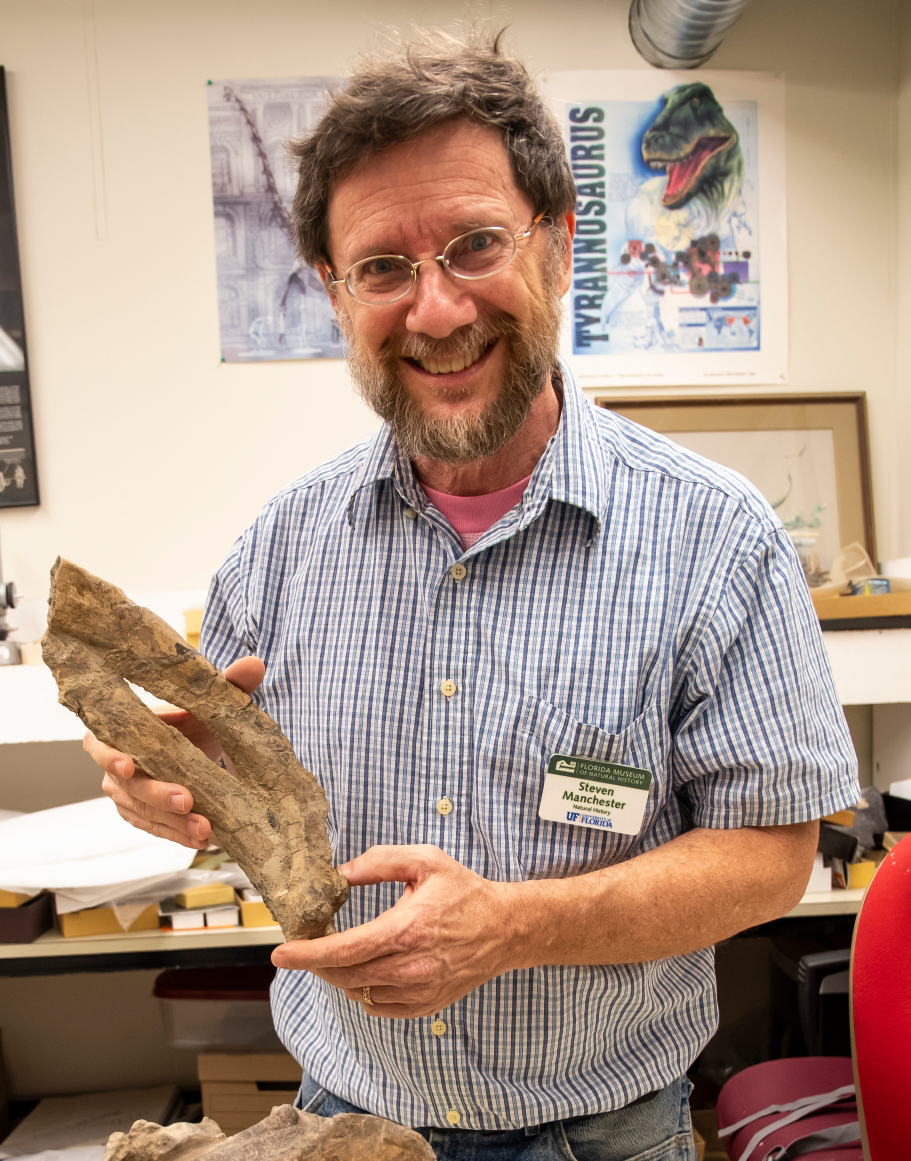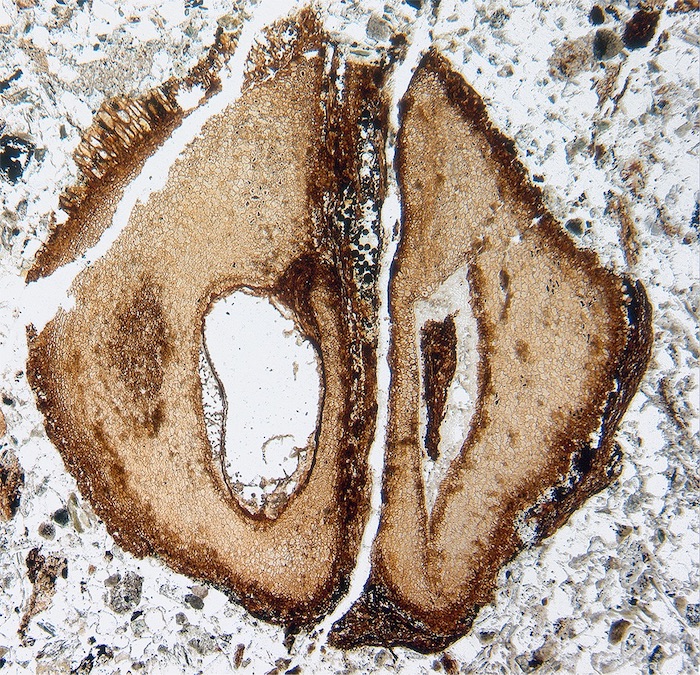A fruit from a mahogany tree that flourished in the time of the dinosaurs has been named in honor of Steven Manchester, curator of paleobotany at the Florida Museum of Natural History.
Described by Brian Atkinson of the University of Kansas, the exceptionally well-preserved fossil is the earliest record of the mahogany family, Meliaceae, dating between 72 and 79 million years old, and was found on Vancouver Island, Canada. The mahogany family is often used as a study system to understand the evolution of tropical rainforests.
Atkinson christened the newly discovered genus and species Manchestercarpa vancouverensis for “a prolific paleobotanist who’s really improved our understanding of the evolution of flowering plants through the fossil record,” he said in a Kansas press release.
“This came as a complete surprise, so it brightened my day,” Manchester said. “Dr. Atkinson is perhaps best known for his high-quality work on the early fossil record of dogwoods and their relatives. He has applied the same high standards to his new work on the mahogany family. The new fossil, which he kindly named after me, is amazingly well preserved – probably better preserved than me!”
Among Manchester’s other scientific namesakes are an extinct species of walnut, a fossil maple, an elm and fossil walking stick eggs.
Atkinson published his research in the American Journal of Botany.
Source: Steven Manchester, steven@flmnh.ufl.edu

